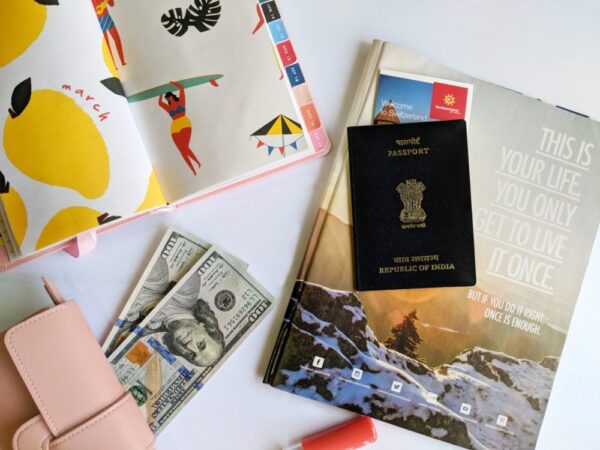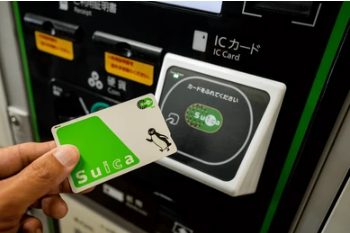
Austria | Czechia | Europe | France | Germany | Italy | Moncao | Netherland | Spain | Switzerland | Travel Guides Hacks | Vatican

Europe is one of the most beautiful destinations to visit in the world. With an abundance of culture and spectacular destinations, from the sun-kissed Mediterranean beaches, the museums of Paris, the sunshine in Santorini, and the cool alpine splendor of Switzerland to the hustle and bustle of London, you’re sure to have an unforgettable trip. But, there are lots of things you should do to ensure a more relaxed European visit. So, here I am with 15 important Europe travel tips to make your trip a little smoother.
As with any visit to a different place, either for the first time or tenth time, you will no doubt have shed loads of questions and curiosities about how everything works, the etiquette, and probably a burning desire to master as much of the slang as possible. So before you head around London shouting “Alright guv’nor”, take a look at these 15 important Europe travel tips to make your trip a little smoother.
Before you start packing for your next trip, know some bathroom etiquette know-how for your trip to Europe. Familiarize yourself with local lingo when asking for the bathroom. In Europe, ask for the “water closet” or the “toilette.” It is common to pay to use public restrooms in Europe, even if they appear to be free. If there’s no cost to use the restroom, there is likely a cost for toilet paper or a tip dish for the bathroom attendant.

If you are a visitor to Europe and are about to leave European territory to go home or to some other place outside the EU, you may be entitled to a VAT refund. All you have to do is to be mindful of where you’re shopping, get all of the proper paperwork once you’ve made your purchases, get the paperwork to the airport to get stamped, and find the refund service office inside the airport to collect your cash.

Be responsible while traveling to Europe. Remember that you are a guest in another country. Don’t litter, do not use the bicycle lanes for walking, and do not skip the first verse of the German national anthem. Avoid drinking in public places, and do not make much noise.

City walking tours will give you an overview of one specific face of the city, be it historical or drinking-centered. While many European cities offer free walking tours, it can be a great way to learn about Western Europe. Going on a beaten path in the city will give you insight into the city’s common tourist attractions and less obvious sights while visiting Europe. Most local travel guides will subtly or not-so-subtly mention throughout the tour that they are doing this voluntarily and that tipping is the right thing to do.

There will be nowhere in the world that serves no better chocolate than in Belgium and Switzerland, no better pasta like the Italians, and no better excuse to eat copious amounts of gelato for every meal of the day. I suggest you have takeaways or meals on the go. Street food at delis and local restaurants are cheaper than food in restaurants.

While tips are appreciated no matter where you travel, tipping in Europe is pretty expected, but not the 15-20% in the US. Tipping culture in European nations is fairly straightforward. At restaurants, first check the menu to see if service is included, if not, then a tip of 5-10% is normal. In most places, 10% is a big tip. If you order your food at a counter, then no need to tip.

Don’t forget to get a local SIM Card and electric essentials. Most airports will have kiosks where you can rent or buy one. Using a SIM card from a European carrier gives you access to the same low-cost dialing options available to locals. Buying a local SIM card in Europe is far cheaper than using your home carrier while traveling.

If you are going to be doing a lot of walking, then comfortable and protective shoes would be best. Wearing uncomfortable shoes while traveling Europe can cause injury if not appropriate for long periods of walking and standing. Avoid taking taxis while getting in Europe. Instead, go for buses or trams, or even best, go on foot to get around the city.

Metros, buses, and trams are the cheapest and most convenient modes of transport to take in Europe. A single-pass can give you access to all three and can be bought off most stores, bus stops, and metro stations and help you save money. Stay clear of cabs. Many museums in Europe offer free or discounted entry on certain days or nights of the week or month. For example, the entry to Louvre in Paris is free on the first Saturday of each month, as well as on Bastille Day. Consider staying outside the city center to get a lower hotel rate to maintain budget.

Avoid exchanging money at the airport while traveling Europe. They will charge you 8% to 12% of the money. I suggest you have some foreign cash in advance before landing in Europe and make the rest of the exchange after a day or two of research in the market and find the most valuable and beneficial trader who’ll be the most profitable for your trip.

Learning a few necessary words in the local languages of Western Europe will make it easier to communicate while visiting Europe. Not only will knowing these necessary words and phrases in the local language expand your skills, but it will also enrich your travel experiences and help you earn the respect of the locals. The longer you plan to spend in a country, the more words you should know in the local language.

The biggest uncertainty when going to a new location is connectivity. Download the offline Google Maps of places in Europe to ensure you can get around no matter what. This will allow you to look up tourist attractions, hotels, or anything else, even if you lose access to the internet. You also create a custom travel map in Google for your Europe trip, complete with hotels, restaurants, things you want to see and do, and more. Having custom tourist maps makes it easy for me to gather your ideas in one place, make sure you don’t forget anything and have the best trip possible.

You must pack light, especially if you’ll be taking public transportation to get around Europe.
As wanderlustcrew says, there’s nothing more frustrating than trying to haul heavy luggage around on trains.
There are so many benefits of travelling light which I have learned during my Europe travel. You will not have to stand in long lines to check your bag, you will not have to pay for checked luggage, and you will not have to show up early to the airport. You will be able to switch to an earlier or non-delayed flight more easily and you can take public transportation to get around, which is usually faster and cheaper in Europe.

As airfare will probably be the most expensive part of your trip, you must book it before anything else. This will allow you to get cheap flights and be more flexible with your dates during your Europe travel, which is a great way to save money on your flight. Make sure to keep an eye out for cheap flights as soon as you know the dates you will be travelling. I suggest you buy your flight 2-3 months in advance for a budget-friendly trip. Before planning a trip to Europe, find your passport and make sure it’s valid. It doesn’t matter if you’re only going for a day or a month if you don’t have at least 6 months validity; you could, and probably will be denied entry.

If you’re like me and you have a humongous list of places in Europe you want to visit, this could be tricky. To enjoy a smooth and hassle-free visit to these monuments, book the attraction tickets in advance. There will be separate queues for online ticket holders and in this way, you can avoid long queues. Do research your must-see travel list, and plan your vacation around that. Especially taking into consideration that during winter, almost everything in Europe changes, opening hours, weather, light in the day, and so on.

You should know the following things before traveling to Europe.
– Make Sure You Have A Valid Passport
– Call Your Credit Card Company
– Pack Light + What Not to Pack
– Pack an Extra Bag
– Always Pay in Local Currency
– Avoid ATM Fees
– Make Reservations in Advance
– Check Your Phone Plan
– Be Prepared to Go Over Budget
You should not do the following things when traveling to Europe,
– Avoid taxis late at night
– Do not litter
– Do not use the bicycle lanes for walking
– Do not skip the first verse of the German national anthem
– Do not assume that everyone knows English
– Do not beckon the waiter by waving
– Do not leave a bigger tip than required
– Avoid drinking in public places
– Avoid making much noise
May, June, and September are the best months to go to Europe.
You need 50€-70€ a day in Europe.
Taking a bus is the best way to travel in Europe.
Paris, London, Rome, Florence, Barcelona, Prague, Amsterdam, Santorini are the best places in Europe to travel.
I hope this post about the best travel tips for Europe will help you to plan your dream trip to Europe! If you know anyone else planning a European vacation soon, please feel free to share this article of essential tips for Europe with them. Happy travels!

Switzerland is known as “Heaven On Earth”, and is in a true sense a travelers’ paradise. Switzerland turquoise-colored lakes, towering snow-capped mountains, impressive scenic railways, cascading waterfalls, and its picture-perfect alpine villages beckon tourists from all over the world. Switzerland is brimming with many spectacular destinations which make it practically impossible to make an exhaustive

Amsterdam is packed with attractions, from laneways and canals to fields of multi-colored tulips and grand galleries and museums, all wrapped up in a vibrant atmosphere. As a frequent contender for the title of “Venice of the North”, Amsterdam retains something of a small-town feel, with an emphasis on the quality dining, great arts, and

But finally, in the following year, I did Europe. 10 countries 15 cities 10,0000 Kms traveling in a bus How did I do that? Well, read on as I have compiled the most detailed version of my Europe travel that will give you the accounting by the penny. Heads up, Europe is not cheap, nowhere

Welcome to the land of Sardar Patel, the Iron Man of India! The Statue of Unity, dedicated to India’s first deputy Prime Minister Sardar Vallabhbhai Patel, is a towering monument located in the state of Gujarat. Standing at 182 meters tall, it is the world’s tallest statue, attracting visitors from all around the world. However,…

Weekend Spot Alert!. No, it is not in Lonavala, Pawna, Khandala, or Mahabaleshwar. This place is not so known and secluded from the city crowd. Be ready to be amazed by what this place and property have to offer. Casuarina Resort Park, Bhor, located 50 km from Pune, is popular among puneites and known for…

Nestled on the border of Madhya Pradesh and Maharashtra lies the magnificent Pench National Park, a world-renowned wildlife destination that has captured the hearts of visitors from all corners of the globe. If you’re planning a Pench National Park stay, you’ll find this vast sanctuary spans over 750 square kilometres and takes its name from…

If you’re looking for a relaxing break from the hustle and bustle of everyday life, then you’ll want to check out the things to do in Da Nang, Vietnam. This beautiful coastal city has something for everyone, with plenty of activities and sights to explore. From swimming in crystal-clear waters to exploring ancient ruins, there…

IC cards are reloadable cards designed for convenient fare payments on public transportation and seamless transactions at various vending machines, stores, and eateries. You can use these cards by simply tapping them on a reader for approximately one second. Since 2001, numerous train and bus operators throughout Japan have introduced their own IC cards. In…

Nice offers the best climate 365 days of the year, it pleasant compared to other cities in France. Get ready to try some delicacies, soak yourself on the beach or walk around the promenade or get a panoramic view from the castle. Adding to this, there is a bundle of things to do and explore…